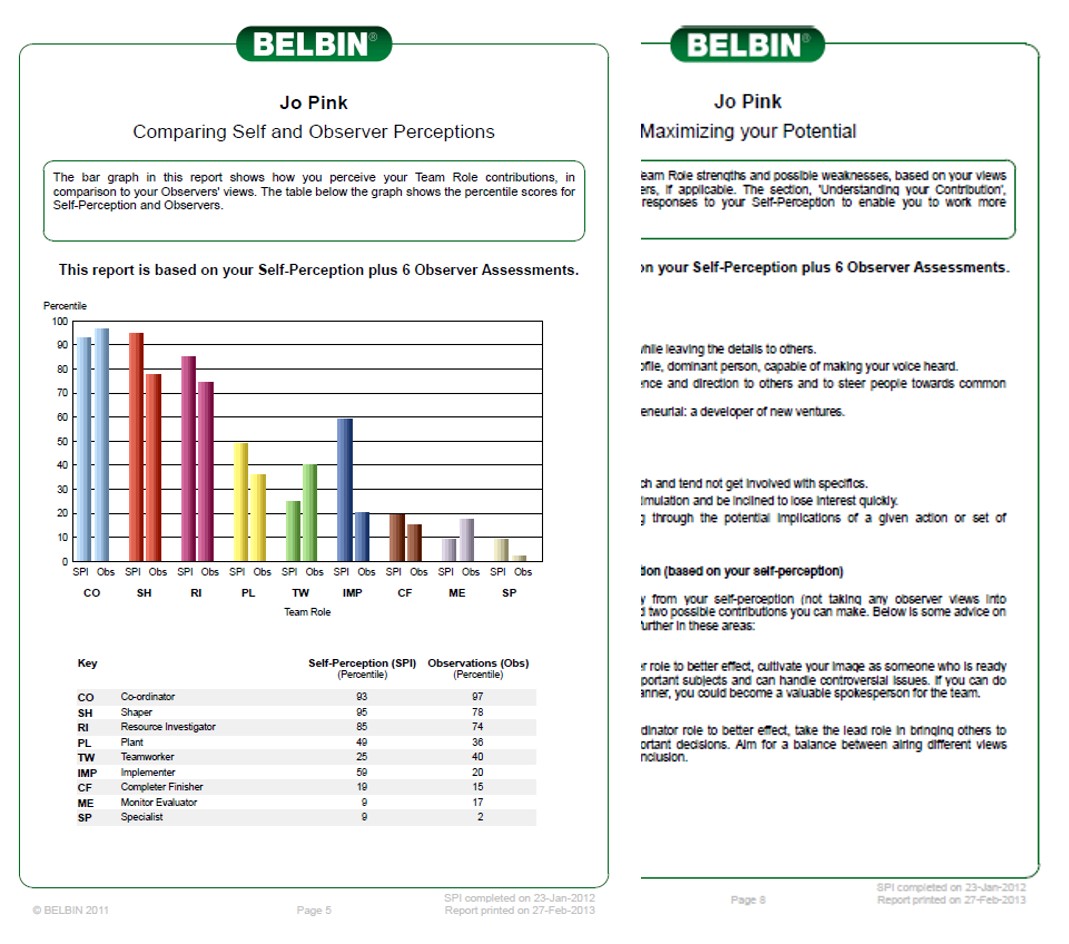"I always respond to the word ‘impossible’. I have heard it uttered many times and always see it as somewhat of a challenge!"
Dr Meredith Belbin
-
1926
Meredith Belbin is born in Sevenoaks, Kent.
-

1945
Meredith begins studying Classics at Clare College, Cambridge and later changes to Psychology.
Image: Helen Knowles © Clare College, Cambridge
-
1946
Meredith marries Eunice and begins studying for his PhD, focusing on the Psychology of Ageing in Industry.
-

1955
Following his doctorate, Meredith is invited to take a research fellowship at Cranfield College (now Cranfield School of Management) to continue his study of older workers in industry. As part of his work, he goes into over a hundred companies, studying how work patterns change with age.
-

1960s
Eunice Belbin is working as a director at the Industrial Training Research Unit (ITRU). Meredith combines his work at Cranfield with consultancy for the Organisation for Economic Co-operation and Development (OECD), which takes him all over the world. In the USA, he works with the US Department of Labor, pioneering the concept of "work experience" to integrate underprivileged members of the community into the workplace.
-

1969
Meredith works alongside Eunice at the ITRU, and is invited to carry out research at the Administrative Staff College at Henley-on-Thames (now known as Henley Business School). He begins planning a research project to study management teams in action. This research forms the basis from which Team Role theory will spring.
-

1973
Belbin’s research begins to appear in management magazines and journals - here, on the cover of 'International Management' in 1973.
-

1980
In Australia, Meredith works with colleagues studying intellectual abilities and teamworking. With a guiding principle of building on success and understanding the reasons for failure, Meredith continues to put his research into practice. In 1980, Anthony Jay writes about Belbin Team Roles in the Observer Magazine.
-

1981
Meredith Belbin expounds Team Role theory in his seminal book, “Management Teams: Why They Succeed or Fail”. The book is later named as one of the top fifty management books of all time.
-

1980s
Meredith works for ICI Paints and Cadbury’s Schweppes, reporting on how well individuals might be suited to a particular job, for the purposes of recruitment and selection. By the late 1980s, Meredith finds that demand is well outstripping supply and is forced to work into the night to complete the reports.
-

1987
Meredith, Eunice and their son, Nigel, form Belbin Associates, focusing on the selection of graduates from companies such as ICI, Sun Alliance and Cadbury Schweppes. They use a variety of tests – 16PF, Watson Glaser Critical Thinking - alongside their own: the Self-Perception Inventory, Job Feature Questionnaire, Job Requirement Exercise and Personal Preference Questionnaire. They run Teamopoly (derived from Meredith's original research) as a two-day exercise.
-

1987
David Bainbridge joins the company as a partner and develops the expert system called Interplace (so-called because it was first designed to assist with ‘interview’ and ‘placement’), which encapsulates Meredith’s Team Role advice and produces automated reports. (Left to right: David Bainbridge, Meredith Belbin, Nigel Belbin)
-

1993
Meredith publishes "Team Roles at Work", which provides practical applications for Team Role theory in the workplace.
-

2001
Belbin Interplace software is launched, allowing organizations to profile individuals, collate team information and outline jobs in terms of Belbin Team Roles.
-

2006
Belbin launches a web application to deliver Belbin reports online – the Belbin Online Account.
-

2008
Meredith visits China and Russia to speak about the application of Team Roles in different cultures. His message is well-received by the Russian Atomic Energy Authority and helped change attitudes to management in Russia. Rusal, a Russian aluminium company, embrace Meredith’s philosophy with regards to organisational structure as well as individual difference.
-

2012
A five-year research project culminates in major update to our inventories, algorithms and reports. The result is the seventh version of Belbin’s reporting system.
-

2016
GetSet, the version of Belbin for students, is relaunched, helping schools, universities and careers advisors to develop the potential of those entering work.
-
2017
Meredith continues to play an active role at Belbin. Here, he explains what Belbin aims to do, and why the language of Team Roles is so important for teamworking.
-
2018
Belbin operates in over one hundred countries, with the Belbin inventories and reports translated into more than twenty languages. We regularly speak at conferences and events internationally, spreading the Belbin message across cultures.
-
2022
This year, we celebrate the launch of Interplace 8 - the eighth version of our Belbin reports and online platform. Here, Meredith Belbin explains how his Team Role theory has stood the test of time and has expanded across the globe.